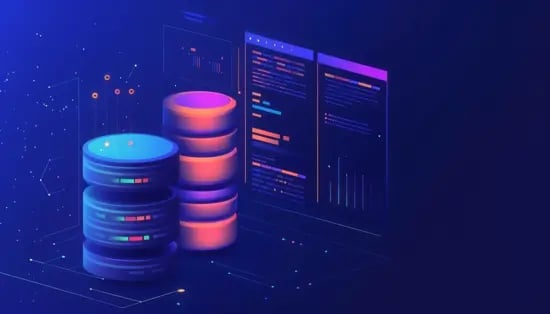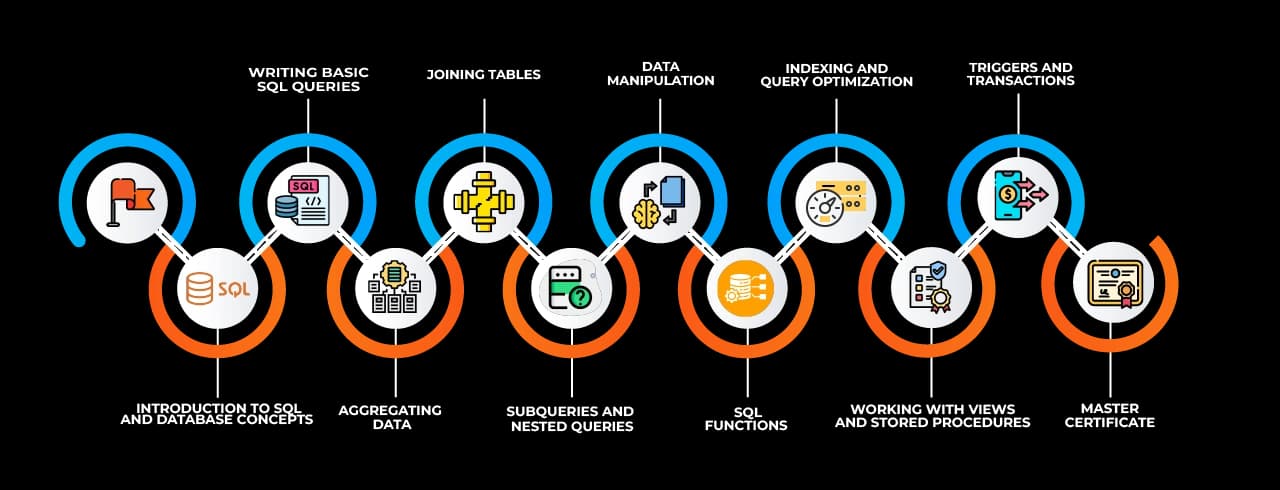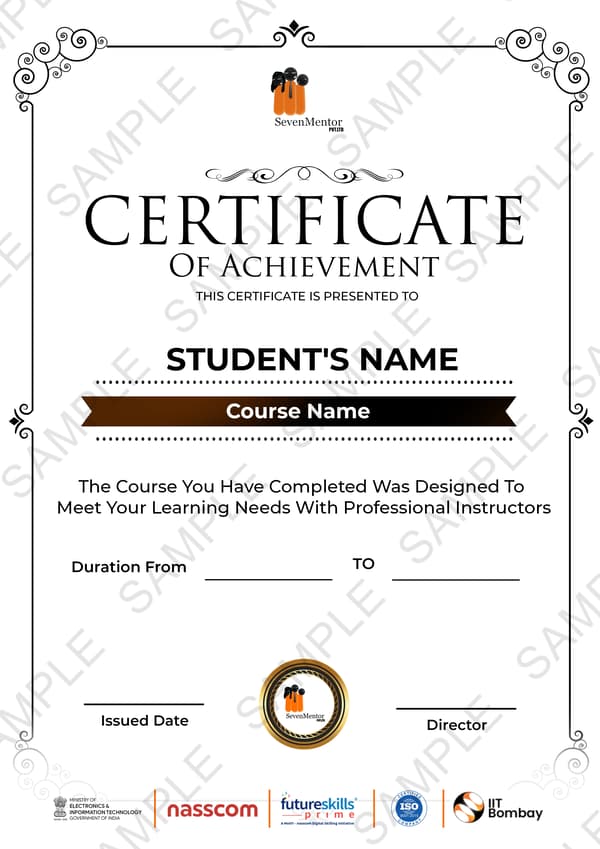SQL Training in India
 Become an Expert in Database Management with SevenMentor Institute’s SQL Training
Become an Expert in Database Management with SevenMentor Institute’s SQL Training Gain Industry-Relevant Skills and Open Doors to High-Paying Career Opportunities
Gain Industry-Relevant Skills and Open Doors to High-Paying Career Opportunities Master SQL for Data Retrieval, Optimization, and Scalable Database Solutions
Master SQL for Data Retrieval, Optimization, and Scalable Database Solutions
CONSULT WITH
OUR ADVISORS
- Course & Curriculum Details
- Flexible Learning Options
- Affordable Learning
- Enrollment Process
- Career Guidance
- Internship Opportunities
- General Communication
- Certification Benefits
Request Call Back
Learning Curve for SQL in India

Why Choose SevenMentor SQL in India
Empowering Careers with Industry-Ready Skills.
Specialized Pocket Friendly Programs as per your requirements
Live Projects With Hands-on Experience
Corporate Soft-skills & Personality Building Sessions
Digital Online, Classroom, Hybrid Batches
Interview Calls Assistance & Mock Sessions
1:1 Mentorship when required
Industry Experienced Trainers
Class Recordings for Missed Classes
1 Year FREE Repeat Option
Bonus Resources
Specialized Pocket Friendly Programs as per your requirements
Live Projects With Hands-on Experience
Corporate Soft-skills & Personality Building Sessions
Digital Online, Classroom, Hybrid Batches
Interview Calls Assistance & Mock Sessions
1:1 Mentorship when required
Industry Experienced Trainers
Class Recordings for Missed Classes
1 Year FREE Repeat Option
Bonus Resources
Fastest 1:1 doubt support
Flexible EMI Plans
Adaptive LMS
Free Wifi Facilities
Flexible Scheduling
Ongoing Career Support
Placement Drives
GitHub Project Implementations
Real World Topics
5/5 rating for 99% doubt Solutions
Be Different With Master Certificate
Latest Market Technology & Practical Training
Resume Building Session & Job Portals Training
Enhanced Capstone Projects for learning
Stand Out with an impressive Certificate
Weekday and Weekend Batches
Workshops & Seminars with Industry Experts
Unlimited Interview Calls
AWS Cloud Project Deployments
Live Quizzes
Resolve doubts any time through chat, voice notes, calling or meeting with instructors.
Curriculum For SQL in India
BATCH SCHEDULE
SQL in India Course
Find Your Perfect Training Session
Feb 15 - Feb 21
2 sessionsFeb 22 - Feb 28
1 sessionsMar 1 - Mar 7
1 sessionsLearning Comes Alive Through Hands-On PROJECTS!
Comprehensive Training Programs Designed to Elevate Your Career
No active project selected.
Transform Your Future with Elite Certification
Add Our Training Certificate In Your LinkedIn Profile
Our industry-relevant certification equips you with essential skills required to succeed in a highly dynamic job market.
Join us and be part of over 50,000 successful certified graduates.

Course Content
Frequently Asked Questions
Everything you need to know about our revolutionary job platform
Will I receive study materials for my course in SQL?
Does the SQL course cover advanced database concepts during training?
How does SevenMentor Institute support career growth after course completion?
What are the eligibility criteria for enrolling in the SQL course at SevenMentor Institute?
Does SevenMentor Institute provide placement assistance after the SQL course?
What syllabus of SQL is trained along with SevenMentor Institute?
Why should I join SQL training at SevenMentor Institute?
What tools and technologies will I learn in the SQL course?
Are there any real-time projects in the SQL course?
What is the teaching method of SevenMentor Institute as a training partner in SQL?
What is the duration of the SQL course?
What are the career opportunities after the SQL course?
How can I advance my career with a SQL certification?
Does SevenMentor's SQL course offer online instruction?
Why is SevenMentor regarded as one of top SQL training facilities?
Explore Other Demanding Courses
No demanding courses available at the moment.
Debug: courses prop type: object, isArray: yes, length: 0




